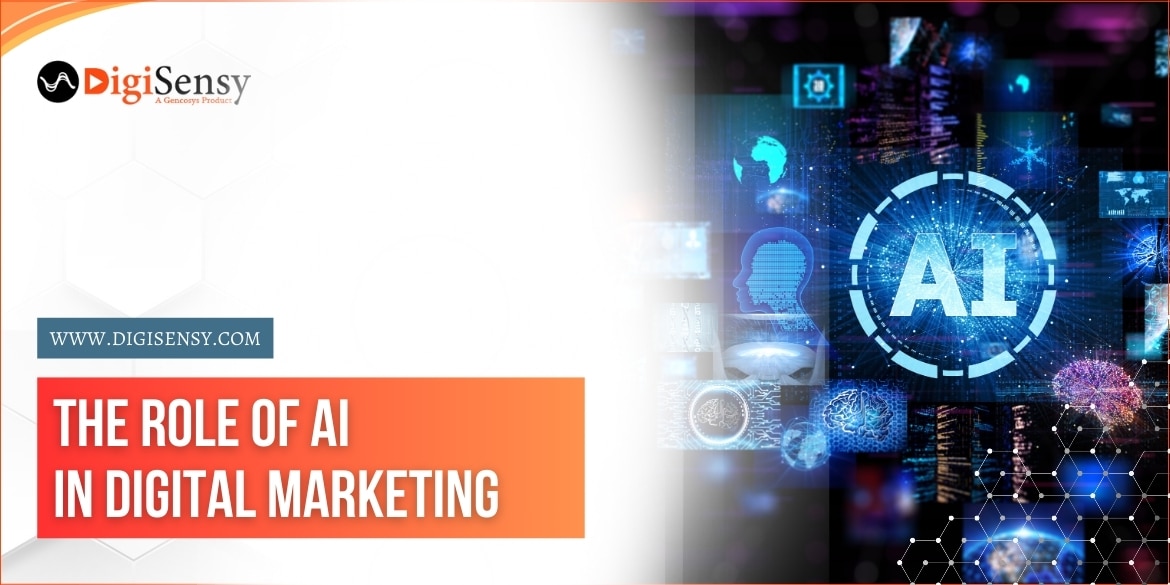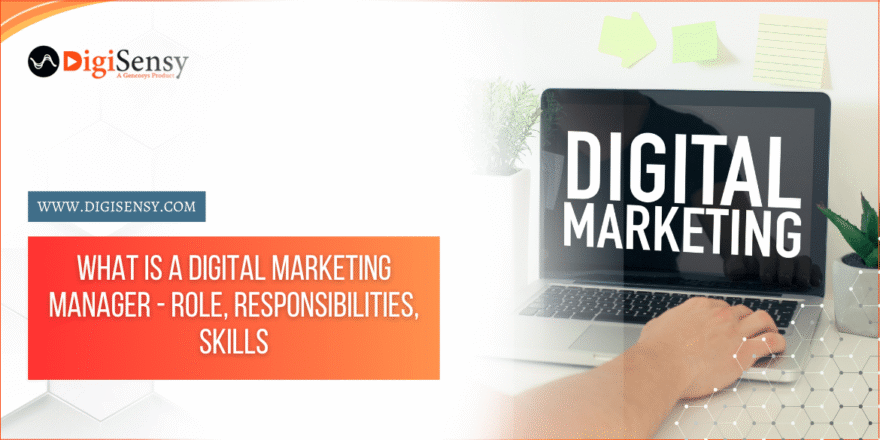AI has made its way into the digital marketing field, quickly improving its technology and taking over new marketing areas completely, such as digital ads, cross-platform marketing, interactive engagement, etc. Another way by which AI brings change in the digital marketing field is with programmatic advertising. Such technology automates targeting audience-matching ad placement. It can be a real-time auction, allowing advertisers to buy and place ad inventory in the same way as online buying has changed market behavior.
It is John McCarthy who coined the term artificial intelligence, defining it as follows: “the science and engineering of making intelligent machines, especially computer programs.” Therefore, artificial intelligence comes in when nearly all significant activities humans are involved with concerning learning and reasoning characteristics can somehow be performed with machines and systems almost living up to that of a human.
AI in digital marketing
It should be combined with AI technologies that assist or automate numerous marketing processes previously done by employees. This may include analysis, segmentation of audiences, creation of content, and managing campaigns. Unlike the static approaches and general targeting of conventional methods, real-time AI style optimizes personalization and campaigning through advanced algorithms and data.
How Major Corporations Are Integrating AI Into Digital Marketing
Here is a short insight into how prominent organizations are using AI to ensure their marketing success:
- Amazon leverages AI in member-oriented product recommendations through customer behavior and browsing. It also improves search results of products and ad placements.
- Google incorporates AI into Google Ads to maximize ad targeting, bidding strategies, and placements. AI analyzes user action to display more relevant ads and better ROI.
- Facebook uses the power of AI to deliver ads that suit individual needs, examining interests, behaviors, and demographics to improve ad engagement and reach the appropriate audience.
- AI-based recommendations of content are made by Netflix from an automated understanding of viewing habits to hold viewers and prop up its subscription.
Using personalized recommendations, chatbots that provide customer service, and marketing campaigns specifically tailored to customers, Alibaba would rely upon AI for showing its shopping experiences while implementing more sales.
Some of the Top Digital Marketing AI Tools
While ChatGPT is a household name, many such AI tools continue to redefine daily processes all over the realm of marketing. Here are some of those artificial intelligence tools making it happen:
- Writer: The content generation tool can repurpose content and even help in writing.
- MidJourney: The compelling narrative is translated into eye-catching images.
- Optimove: An AI-driven consumer data platform with marketing features.
- Zapier: Set up links between popular apps to automate workflows.
- Manychat is a personalized AI chatbot for customers with all their favorite social media platforms, including WhatsApp.
- Evolv.ai: uses machine-learning algorithms to effect real-time improvements in customer experience.
- Surfer SEO: Optimizes website content for search engines.
- Mailchimp has AI tools for personalizing email campaigns to improve engagement.
- Perplexity: Research-oriented AI and provides citations for precise and clear information.
- Drift: AI-powered conversations improve their lead generation significantly.
Artificial Intelligence in Digital Marketing: Complete Guide
AI embedded almost in all facets of digital marketing is enabling the marketers to spend less time, perform better, and enhance personalization. Here is how to leverage AI into your daily work to benefit your marketing:
Content and Image Creation:
Marketing agents sometimes need to brainstorm content ideas on short notice for certain purposes and platforms. Making quality content, however, requires time and commitment. Marketers are often strapped for time and resources. Thus, AI copywriting tools like ChatGPT and Claude have become in great demand because they enable instant generation. Therefore, generative AI tools create marketing materials such as email subject lines, ad copy, landing pages, blogs, etc.
AI also helps come up with catchy headlines or tailor content to fit the user profile better, which promotes personalization. Influencer marketing projects are highly conducive to using AI in relationship management and promotions. Overall, these AI tools save time and resources, yet content approval and checks are mandatory before publishing to ensure compatibility with brand tone and a personalized feel.
Customer Service and Support
AI-powered chatbots, which in the past have helped in rendering instant answers for customers, have assumed a more center-stage role in the current times. Customers with basic queries or general concerns about a company’s products or services would generally start their queries via a chatbot.
However, AI does much more than just answer basic questions. It can enhance customer service by delivering personalized messages and content, anticipating customer needs, facilitating the buying process, and forwarding any questions or issues to the correct team or individual.
Customer Segmentation
Segmentation and targeting help you find and connect with the valuable customers, but going about it manually can be time-consuming and expensive. AI can cluster the customers according to their likes, needs, and behaviors, allowing you to send messages following personalized communications for each cluster, along with the capability of real-time modification.
AI can also help you provide recommendations about products, services, or offers that best match the individual, help obtain customer feedback and reviews, and work on improving your product, service, or overall experience.
SEO Optimization
AI can stand a pretty fair chance of invading the doors of SEO. From Google to any other search engine, all work under the heavy arms of the algorithms to crawl and rank web pages. AI is stepping into those shoes, thereby changing how searches have traditionally been done, especially through features like AI Overviews (formerly Search Generative Experience or SGE).
AI could assist in keyword research and the optimization of content by learning about behavior. It is also capable of creating meta tags and headings. AI can be used to analyze SEO trends, user behavior, and search algorithm changes.
Pay-Per-Click (PPC) Advertising
Pay-per-click or PPC, advertising is an ad type whereby you pay only for the clicks it receives. Targeted campaigns designed to attract new customers will give you speedier results while allowing relatively easy modifications.
AI improves your PPC campaigns in many different but important areas, including: \
- Keyword research
- Bidding, targeting the right people
- Ad creation
- Scheduling and placement
- Trend prediction
- Fraud detection
As artificial intelligence becomes ever more advanced, marketers will find productive ways of creating ads, targeting people with them, and measuring their effectiveness. That makes staying up to date with the latest development all the more imperative.
Data Analytics:
Data Analytics Overwhelmed by the data from so many sources, marketers would soon wonder if it were worth it. However, the data holds a treasure trove that can be quickly mined by AI. The marketer would then see insights from the past data to predict future trends and behaviors.
AI can help unearth unusual data patterns that may form an emerging trend. When combined with data analysis, AI can deliver a hyper-personalized experience to customers as it understands the customers much more deeply. For example, in retail, AI can manage inventory and customer service.
This advanced feature of data analysis is what makes ChatGPT an effective tool for analyzing data. Just upload the spreadsheet, and ChatGPT will work at revealing some of the more significant insights from it. At the end of the day, it places AI at a vantage point to place in better business insights that work for you.
E-Mail Marketing
E-mail marketing forms an integral part of any marketing strategy and is equally one of the most effective means through which one can convert potential customers into the real thing and retain their engagement. As with everything else, employing AI tools can help save time and increase performance in email marketing. With AI, you can:
- Analyze the performance of your emails and identify ways to improve it (for example, the best subject lines to use)
- Set up trigger-based auto-email sequences
- Analyze your campaigns and workflows
- Write email copy that is personal to your audience
- Personalize content accordingly to each audience group
- Use dynamic content that changes based on user behavior
- Test different versions of emails to see what works best (A/B testing).
In terms of email, AI helps you also manage the email lists while comparing some of the metrics to tell which email addresses are worth the most. Also, it tells you when is the best time to send emails and how frequently to send them by tracing the performance by frequency.
The Pros and Cons of AI in Digital Marketing
AI is changing the landscape of digital marketing with its benefits and hurdles. Here is a basic summary of AI impacts on digital marketing.
Pros of AI in Digital Marketing
- Enhances Productivity: AI automates repetitive chores, affording its users time for strategic work.
- Enhances Efficiency: Routine chores such as data entry, lead classification, or responding to short customer queries are carried out via AI.
- Provides Insight: AI gives data insights to the marketers for making better data-driven decisions.
- Improves ROIs: By analyzing customer behavior, AI enhances the user experience and presents relevant and conversion-critical content positions.
- AI Creates and Optimizes Content: AI-based tools allow the bulk generation of quality content for websites, blogs, ads, and social media.
- Delivers Personalization at Scale: AI can deliver personalized messages to more significant groups of customers, which helps elevate their experiences.
- Predictive Analytics: AI predicts the future trends and behaviors of customers so that marketers can plan better marketing strategies.
- It automates other mundane processes such as reporting and data analysis with client segmentation.
Cons of AI in Digital Marketing
Bias: Being a learning model, it is only as good as the input data. If the data contains bias, it could also discover marketing strategies that are unjust or skewed.
Inaccuracy: Errors in the data can result in wrong decisions; therefore, accuracy is paramount in AI.
Ethics: Ethical considerations arise about user data privacy, unintentional manipulation, and hyper-targeting of ads.
Data Sensitivity and Security: This will necessitate the access of sensitive data by AI systems, which is a major concern that must be dealt with through appropriate countermeasures.
Transparency: The availability of a vast body of generated content brings ethical dilemmas like plagiarism, authorship, and intellectual property into the spotlight.
Essential Skills for AI in Digital Marketing
There are two sides: technical and marketing strategy-related.
Technical Skills:
- Data management and analysis
- Content customization and marketing automation
- Testing and process enhancement
Soft Skills:
- Strategic thinking
- Innovative and creative
- Agile in adapting to changes
Mastering both technical and soft skills will smoothen your path toward AI application, which is otherwise perceived as intimidating.”
Conclusion
AI is a great enabler, as it helps marketers automate, personalize, and optimize activities. Data bias and ethical considerations are challenges that AI may have to face to aid and abet any worthwhile effect that it may have on digital marketing. The ability to use AI will give you the time and the results you need while simultaneously adding another skill to your ever-growing arsenal of marketing involvement for the future.
At DigiSensy, we believe in leveraging AI in our strategies and know it is crucial to be ahead in the ever-evolving space of digital marketing. So, why not jump right in and start making some sense of AI in your marketing?




